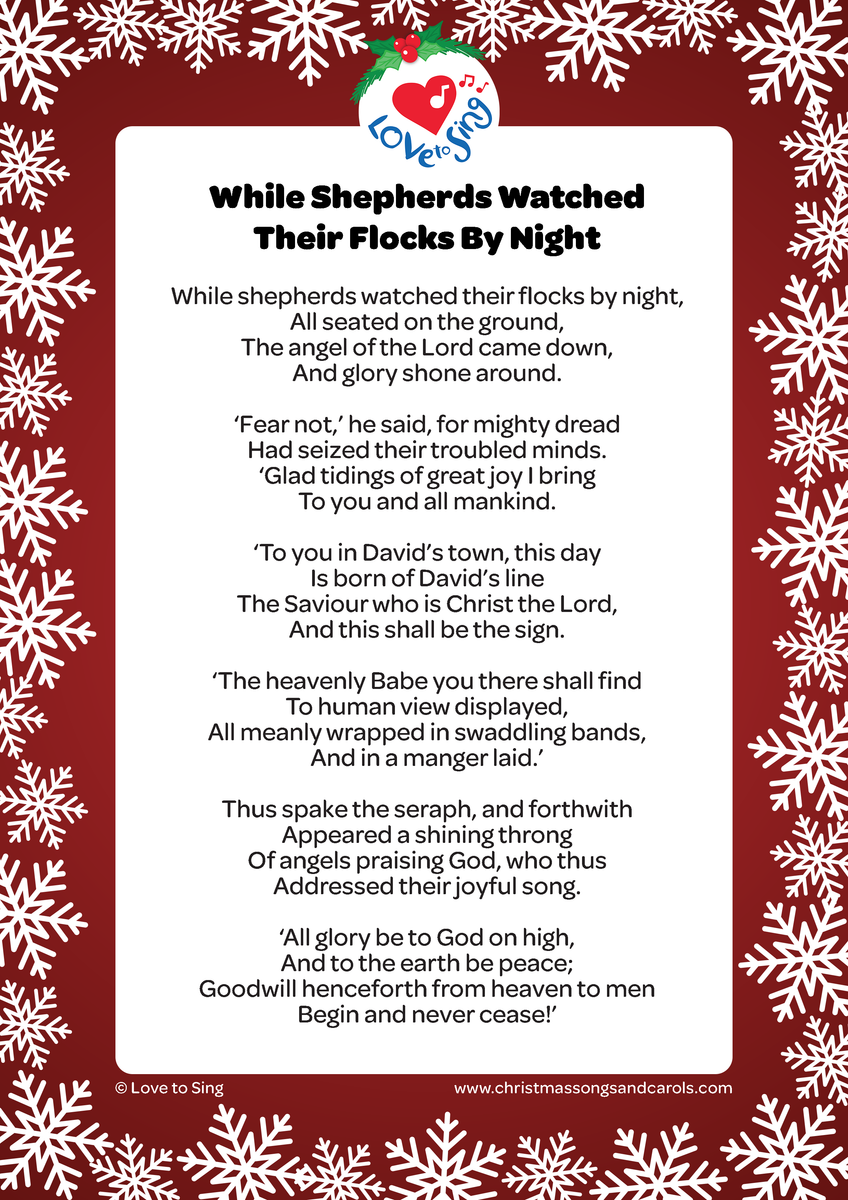
Tate’s paraphrase of Luke 2:11 is: “To you in David’s town this day is born of David’s line the Savior who is Christ the Lord.” The long-awaited descendant of King David (Jesus) was born in the town of David (Bethlehem). In a cautious attempt to introduce a New Testament hymn, Tate wisely chose a passage that drew a connection to David. The Church of his day was exclusively singing psalms of David. Not only did he carefully paraphrase the biblical narrative of the angelic appearance to shepherds, he demonstrated great insight in selecting the passage. Tate showed unique genius in writing the lyrics of his Christmas hymn. It was the only Christmas hymn to gain official approval in the Church of England until Charles Wesley’s hymn “Hark the Herald Angels Sing” was added in a 1782 edition of the New Version. This new hymn was one of 16 that appeared in the 1700 Supplement to the New Version. With the hymn “While Shepherds Watched Their Flocks” (originally titled “Song of the Angels”), Tate paraphrased something other than a psalm he paraphrased a passage from the Gospel of Luke (2:8-14). Despite the fact that the work was endorsed by church leaders, it proved to be controversial – often condemned for being too “gay and fashionable.” Regardless, with time, the new version came to be widely accepted, and Tate and Brady are credited with paving the way for men like Isaac Watts and Charles Wesley who introduced hymns for corporate worship. For over a hundred years, the Church of England had been exclusively singing psalms for corporate worship, and this “new version” made a freer paraphrase of the psalms. In collaboration with Nicholas Brady, a high-profile clergyman and royal chaplain, Tate produced A New Version of the Psalms of David (1696). Tate’s next major literary contribution was for the Church of England. His contributions to the arts were so significant that in 1692, Tate was named poet laureate of England he held this position for 22 years, serving during the dual reign of William and Mary (1689-1694), the sole reign of William (1694-1702) and the subsequent reign of Queen Anne (1702-1714). Tate continued to write plays and even wrote the words for a successful opera, Dido and Aeneas (1689). For 150 years, audiences preferred Tate’s version to the original Shakespearean tragedy. His version of King Lear, with a happy ending, was remarkably successful. Though his first few plays were not successful, he found a treasure when he began reworking some of Shakespeare’s neglected plays. He began writing plays the following year. He moved to London and published his first book of poems in 1677. However, after graduating from Trinity College in Dublin in 1672, Tate decided to pursue a literary career. Both of his grandfathers were clergymen as well.


Nahum Tate, the author of “While Shepherds Watched Their Flocks,” was the son of an Irish Protestant clergyman named, literally, Faithful Teate (Nahum altered his last name to Tate). History of “While Shepherds Watched Their Flocks”:


 0 kommentar(er)
0 kommentar(er)
